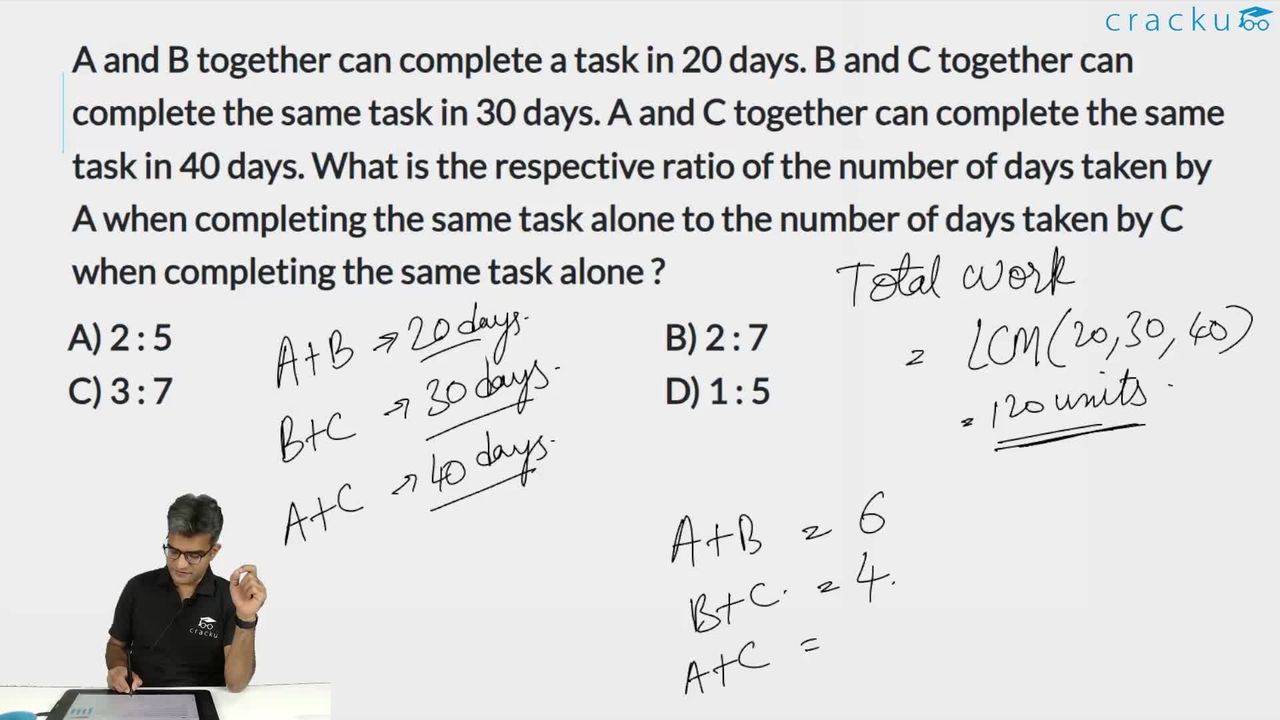A and B together can complete a task in 20 days. B and C together can complete the same task in 30 days. A and C together can complete the same task in 40 days. What is the respective ratio of the number of days taken by A when completing the same task alone to the number of days taken by C when completing the same task alone ?
Solution
Let a, b, c be the amount of work done by A, B, C in 1 day and the total work be W units
(a+b) 20 = (b+c) 30 = (a+c) 40 = W
(a+b) 2 = (b+c) 3 = (a+c) 4
2a+2b = 3b+3c
b = 2a-3c
2a+2b = 4a+4c
2b = 2a+4c
2(2a-3c) = 2a+4c
2a=10c
a=5c
Number of days taken by A to complete the work = $$\ \frac{\ W}{a}$$
Number of days taken by C to complete the work = $$\ \frac{\ W}{c}$$
Required ratio = $$\ \frac{\ \ \frac{\ w}{a}}{\ \frac{\ w}{c}}$$
= 1:5
D is the correct answer.
Video Solution

Click on the Email ☝️ to Watch the Video Solution
Create a FREE account and get:
- All Quant Formulas and shortcuts PDF
- 200+ previous papers with solutions PDF
- Top 5000+ MBA exam Solved Questions for Free
